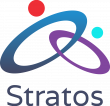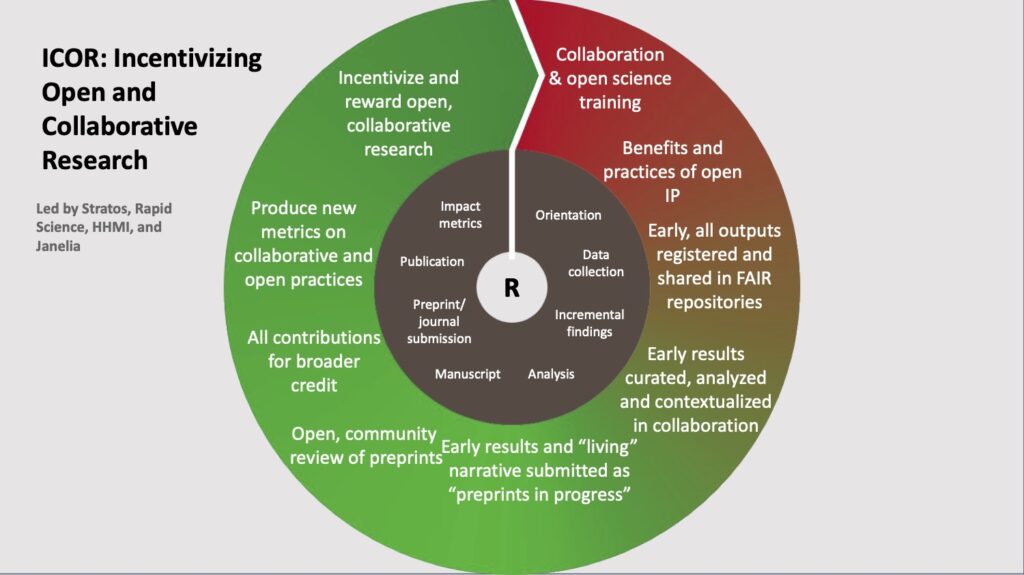Shifting from closed and competitive to open and collaborative research
For the past 15 months, a group of trusted colleagues have been meeting regularly to discuss how to move from dialog to action in changing the incentives for scientific research from closed and competitive to open and collaborative.
Stratos and Rapid Science, working with HHMI and Janelia Research Campus, started these discussions before the pandemic set in, but the impact of Covid and the consequent push for rapid vaccines has practically made the point that open and collaborative science lead to better outcomes. Since then, the EU, UNESCO, the UN, and the National Academies in the US have all released reports and findings supporting open science.
ICOR believes that open is a crucial step towards collaborative research, which in turn is what will get us the fastest and best outcomes in work on climate change, poverty, pandemics, global health, and more. Open is necessary in order for researchers to collaborate early and often. The group includes individuals representing funders, researchers and their institutions, advocates, and nonprofits.
The ICOR work is focused on practical demonstration projects that could scale or become templates for not just doing open and collaborative science, but for how to incentivize and reward it from the perspective of funders, institutions, and governments. This is what’s needed for a meaningful shift in the current research reward paradigm based almost solely on publication metrics.
Check out this video that the ICOR team produced for the recent 2021 Science of Team Science Conference. ICOR will be launching a website in late September that will list the many projects and initiatives already emerging from the group. Look for ways to get involved!
ICOR: video from the 2021 Science of Team Science Conference

